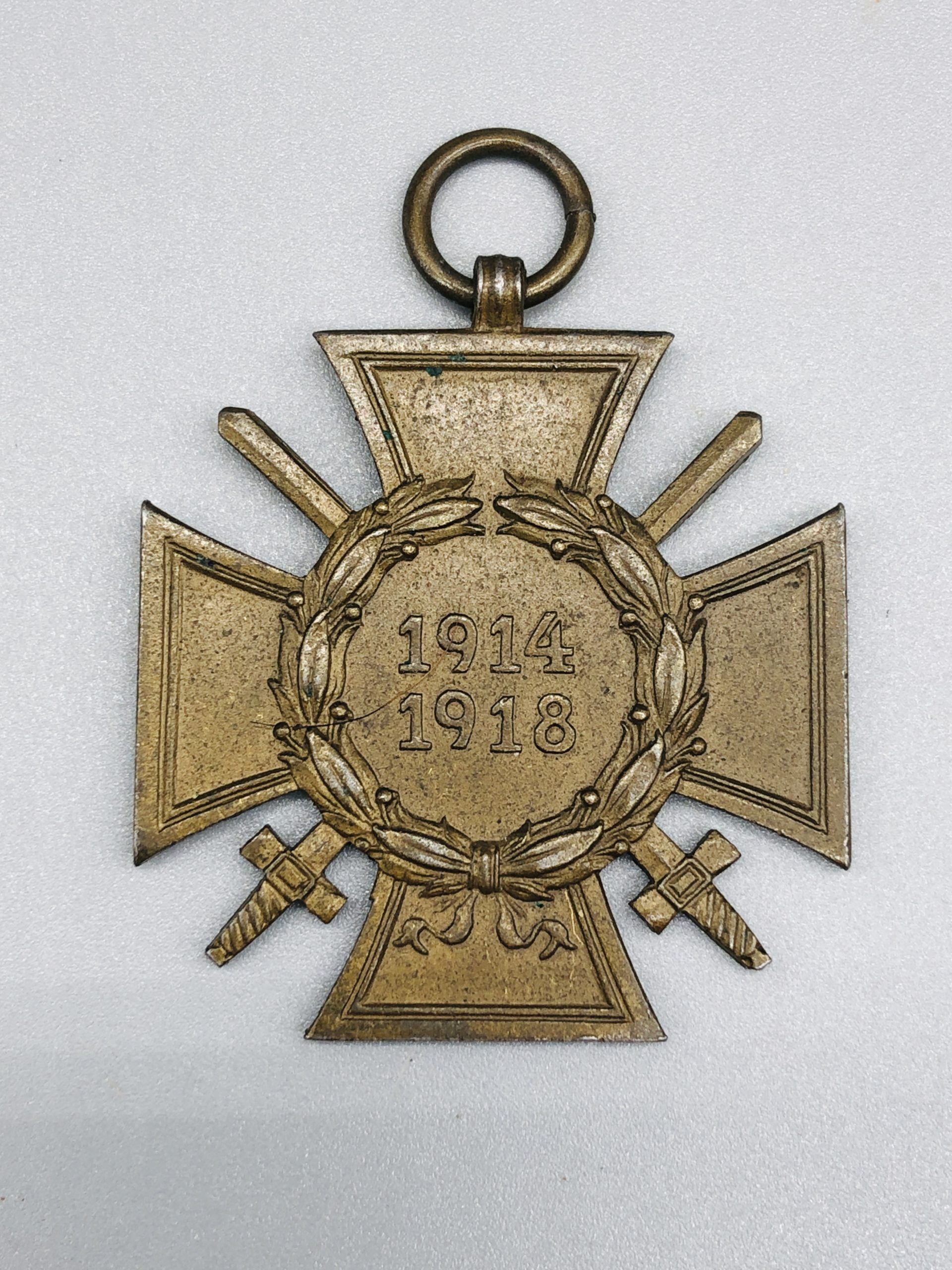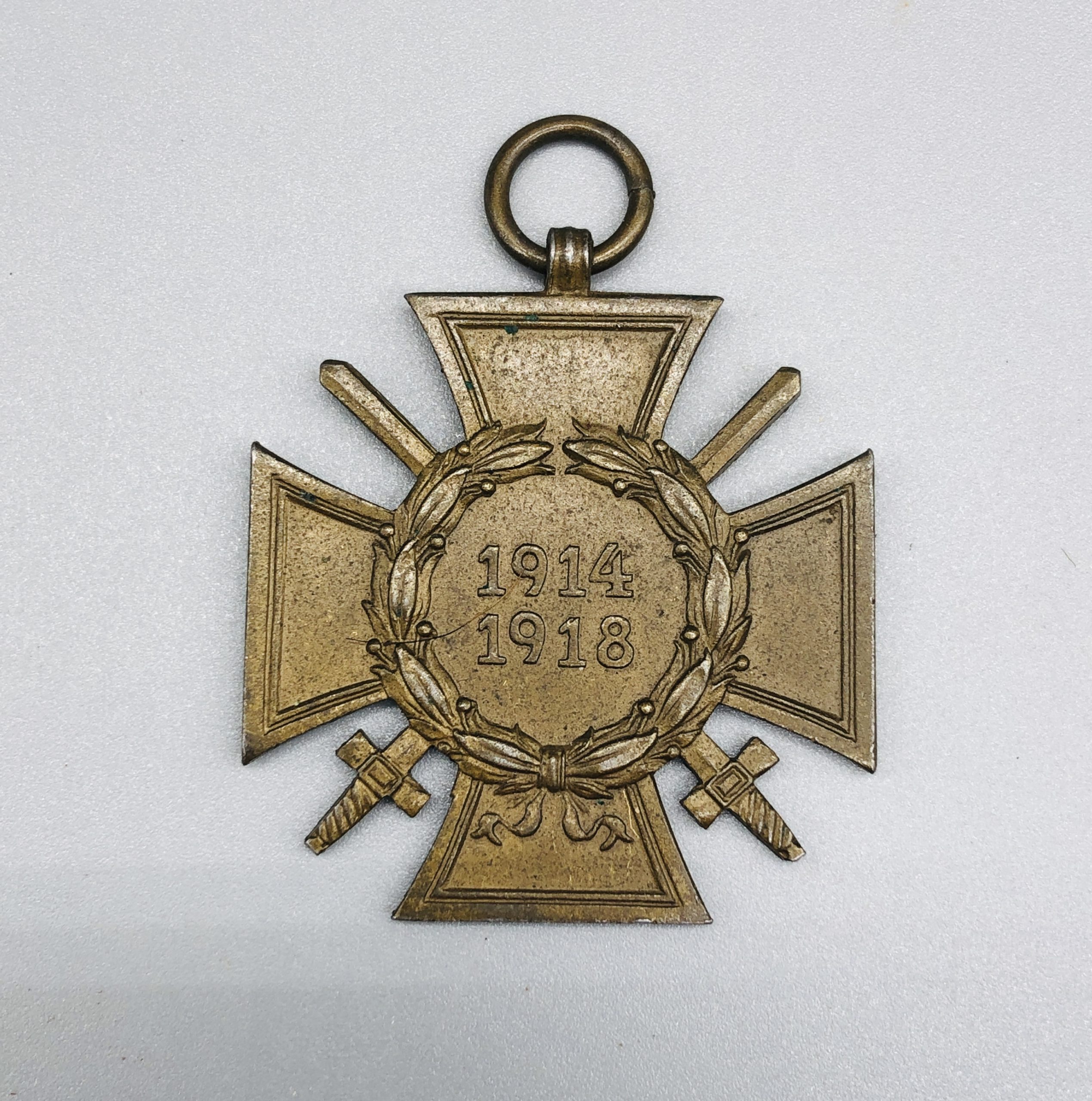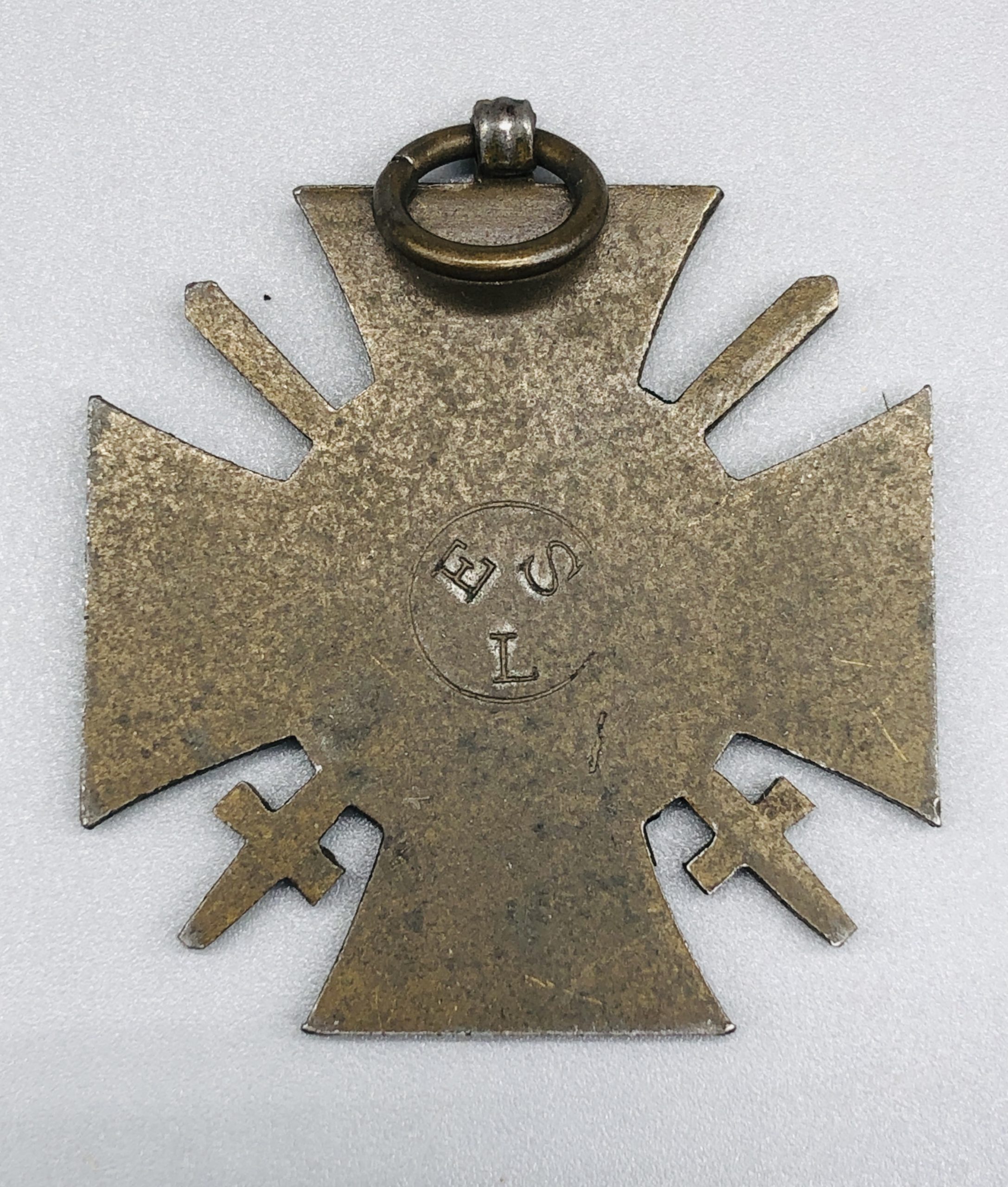Description
Honour Cross 1914 – 1918
The Honour Cross 1914 – 1918 is also known as the Hindenburg Cross was a general service medal, recognising service during the First World War. Three classifications were instituted as one of the last acts of President Hindenburg on 13 July 1934. These crosses are easily the most common German decoration of the First World War – by 15 November 1936, more than 8 million were already issued. The crosses and ribbons were derived from the 1870-71 War Commemorative Medal (a Prussian award), using the same ribbons and very similar designs.
The reverse of all crosses is plain (except in most cases for a maker’s mark) and the obverse is nearly identical. Awarded in three categories:
- Cross for Frontline Service (or Combatants Cross) – as per this example – is bronzed with crossed swords between the cross’s arms. The Imperial-era colours of black, white and red were deliberately used for the ribbon, rather than the black, red, gold of the Weimar Republic. The Combatants Cross was awarded to all who had served in a battle or a siege to all arms and over 6,202,883 combatant crosses were distributed. Awards to military personnel still on active duty are not included in these figures and awards continued until 1944, so the total number is much higher.
- War Participants Cross – the Honour Cross 1914 – 1918 was also issued without swords, for non-front line service, with a wreath of oak leaves for the central design instead of laurel. The same ribbon was used. This was awarded to all German subjects who were engaged in war service for Germany or her allies, but not in direct fighting or a combat zone. 1,120,449 were distributed to war participants.
- Black Cross (or Widow’s Cross) – The Honour Cross for the widows and parents of the fallen (irrespective of whether in combat, died from wounds or died as POW’s) was of the same design as the Participants Honour Cross, but of blackened iron instead of bronze. The ribbon also differed in that it reversed the black and white stripes. 345,132 black Honour Crosses were distributed to widows and 373,950 to parents.




